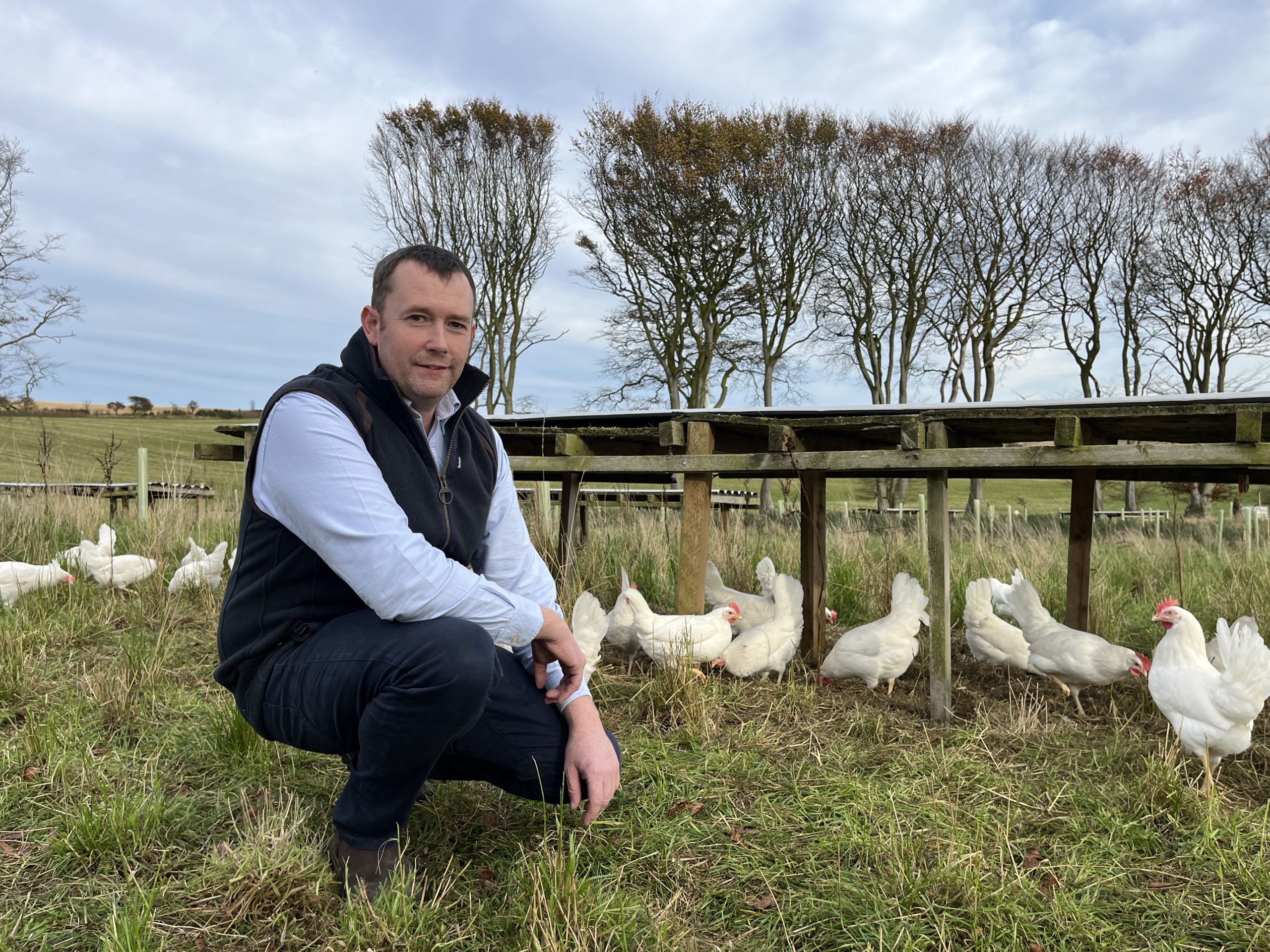Egg producer Farmlay has hatched a plan to almost double productivity for 2025 with a £2.4m investment in a state-of-the-art grader.
AI-based Computer Vision technology is at the heart of the new grading equipment that will be rolled out at Farmlay, Scotland’s second biggest egg producer, in January next year.
Iain Chapman, Farmlay Managing Director, confirmed the new system is being shipped over from the Sanovo Technology Group factory in Holland.
“Our current egg grader is giving us 500 cases an hour and this second one will give us 400, so almost double our output,” he says.
“We were at a crossover as to whether – with demand for eggs at such a high – to simply run our existing grader longer hours. However, doing that wouldn’t have been a long-term solution and could have been risky with no back up machine if there was a problem.
“We have been keenly watching the research and development going on and the Sanovo machine we are getting has been proven to be amazingly efficient, using AI to analyse high-resolution images of the eggs.”
Farmlay is a Scottish farming success story, with Iain’s grandparents starting to rear poultry back in 1946, going on to market their own eggs in the 1970s. The business, which supplies Aldi, Lidl, Morrisons and Spar with its own – and a growing stable of contract producers’ eggs – is still based at the family’s Cockmuir Farm, near Strichen, Aberdeenshire, which has expanded from the original 130 to 2,500 acres.
The investment figure of around £2.4m includes building alterations and bucks the usual trend of modern technology being detrimental to employment levels as once at full output this second grader will generate around ten new jobs, dealing with the increased number of eggs.
“Getting the new grader installed in January will be a great way to start the New Year,” said Mr Chapman.
“There is a real buzz about eating eggs, with lots of posts on social media platforms such as Instagram with celebrities talking about how they are a healthy way of getting protein into the diet. There are definitely more young people eating eggs now than there have been for a very long time.”
Computer vision grading systems utilise advanced algorithms and deep learning techniques to analyse high-resolution images of eggs, enabling them to differentiate between normal eggs and those with cracks. They can also detect variations in colour, texture and shape – all the time absorbing new data to become ever-more proficient.
Latest egg industry data from global shopper and consumer behaviour experts Kantar Worldpanel shows that between 2004 and 2023, retail egg sales increased by more than 20 per cent. While all population sectors are eating more eggs, growth is acknowledged as particularly strong among the 18 to 44 age group. Overall, consumption has risen from 1.6 eggs per person per week to 2.1 eggs per person per week, equating to 110 eggs per person – a rise of almost 30 eggs a year. Free range sales have risen sharply and now represent almost 75% of retail egg sales – more than double their level in 2004 (32%).
Shortages of eggs seen at supermarkets, during both covid and because of bird flu, prompted many retailers to offer five-year rolling contracts to producers.
“In many ways those empty supermarket shelves were a blessing,” says Mr Chapman. “No retailer wants to see a repeat of the egg shortages and that – together with the increased consumption figures – has given them the confidence to show more long-term support. This really is a golden age for egg production.
“Numbers enquiring about coming on board as contract producers are at a high, with eggs being seen by many as a new venture or wonderful way of enabling a younger generation to come home to a family farm. Amazing when you think it’s a sector that people might not have even considered just a few years ago.”

